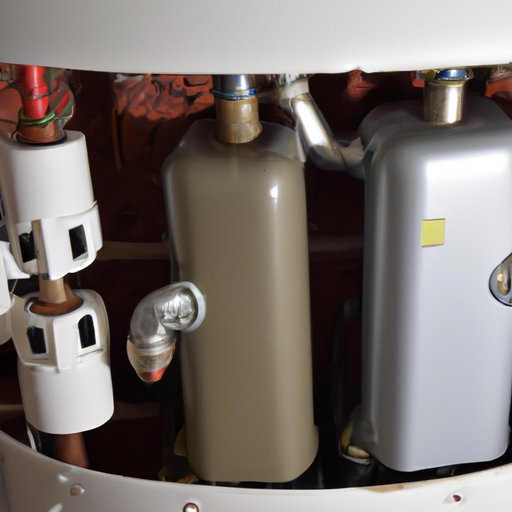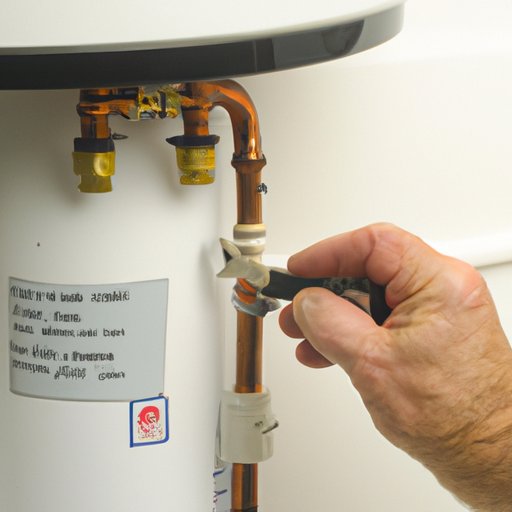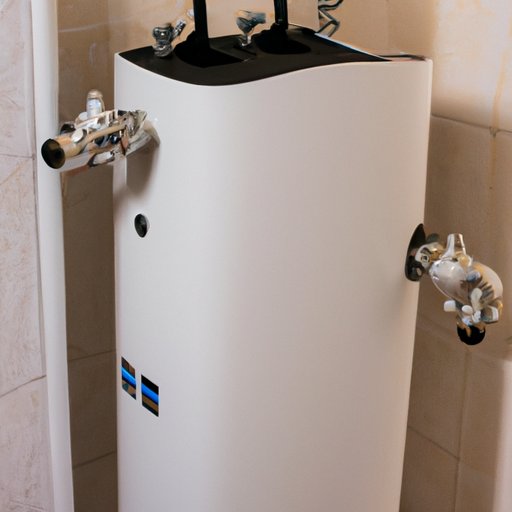Introduction
A hot water heater is a device that provides hot water for bathing, cleaning, cooking, and other uses. It is one of the most important appliances in many households. In this article, we will explore how hot water heaters work, the different types available, and how to install, maintain, and troubleshoot them. We will also discuss the benefits of an energy efficient hot water heater and compare traditional and tankless models.

Exploring the Different Types of Hot Water Heaters
There are three main types of hot water heaters: electric, gas, and tankless. Electric hot water heaters use electricity to heat water, while gas hot water heaters use natural gas or propane. Tankless hot water heaters do not store hot water, but instead heat it on demand as it is needed. Each type has its own advantages and disadvantages, so it is important to consider your needs before choosing a hot water heater.
The Basics of Hot Water Heater Installation
Installing a hot water heater can be a complicated task, so it is important to follow all safety guidelines and take the necessary precautions. You will need certain materials and tools, such as a wrench set, pipe thread tape, and a water shut-off valve. You may also need to hire a professional to help with the installation if you are not familiar with plumbing.

Troubleshooting Common Problems with Hot Water Heaters
Hot water heaters can develop problems over time, such as no hot water, poor water pressure, or leaking or noisy tanks. If you experience any of these issues, it is important to diagnose the problem and address it quickly. Many of these problems can be solved by adjusting the thermostat or flushing the tank. If the issue persists, it may be necessary to replace the hot water heater.
Maintaining Your Hot Water Heater for Optimal Performance
Regular maintenance is essential for keeping your hot water heater in good working order. This includes flushing the tank to remove sediment, checking the anode rod for corrosion, and adjusting the thermostat as needed. With proper care, your hot water heater should last for many years.

The Benefits of Investing in an Energy Efficient Hot Water Heater
Investing in an energy efficient hot water heater can save you money in the long run. Energy efficient models use less energy to heat water, resulting in lower energy bills. They also have a longer lifespan than traditional models, and they are more environmentally friendly.
Comparing Traditional and Tankless Hot Water Heaters
Traditional hot water heaters store hot water in a tank, while tankless models heat water on demand. Both types have their pros and cons. For example, traditional hot water heaters are more affordable and easier to install, but they are not as energy efficient as tankless models. Tankless models cost more upfront, but they are more energy efficient and can provide an unlimited supply of hot water.
Conclusion
Hot water heaters are an essential appliance in many homes. In this article, we explored how hot water heaters work, the different types available, and how to install, maintain, and troubleshoot them. We also discussed the benefits of an energy efficient hot water heater and compared traditional and tankless models. With proper care and maintenance, your hot water heater should last for many years.
(Note: Is this article not meeting your expectations? Do you have knowledge or insights to share? Unlock new opportunities and expand your reach by joining our authors team. Click Registration to join us and share your expertise with our readers.)
